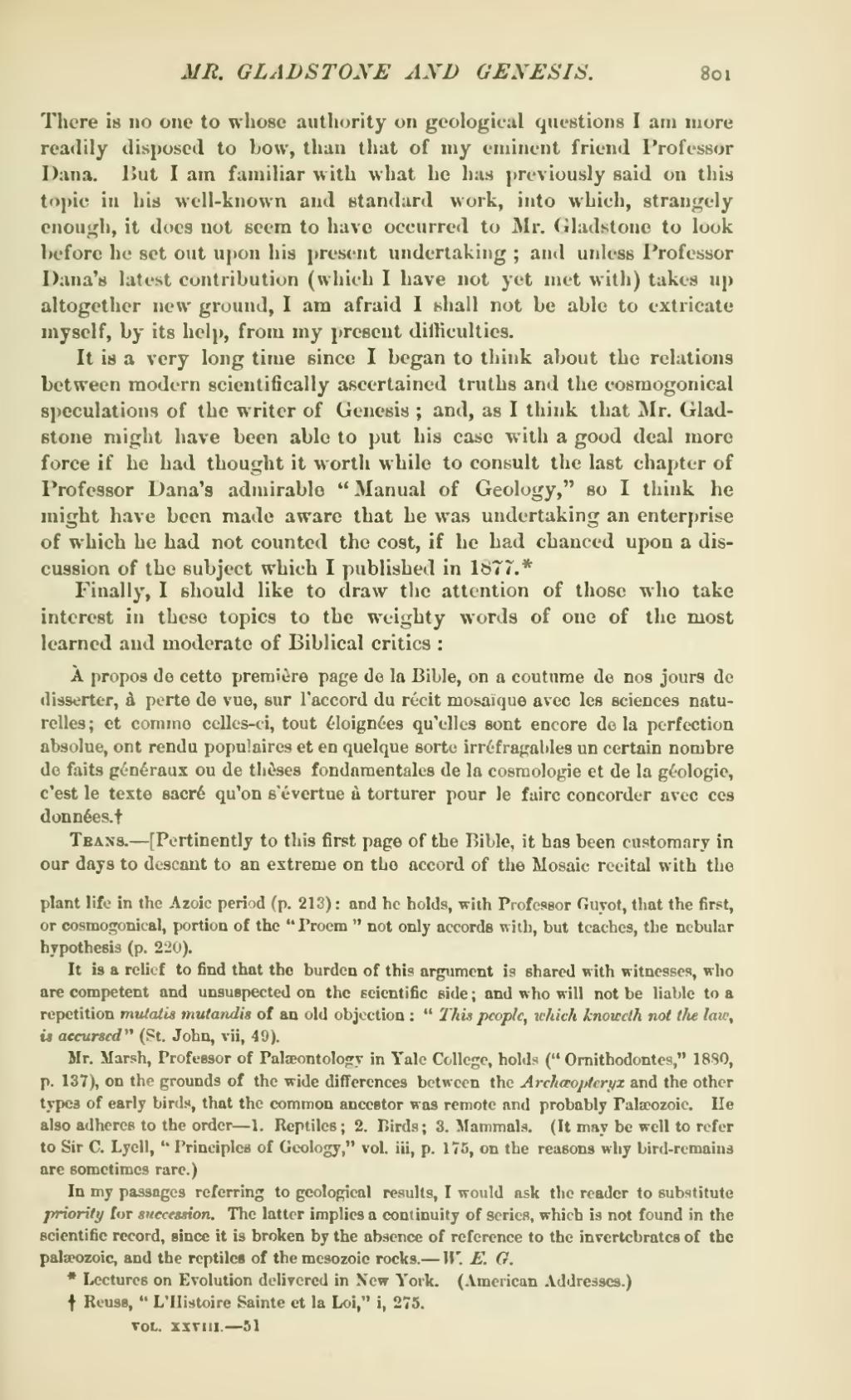There is no one to whose authority on geological questions I am more readily disposed to bow, than that of my eminent friend Professor Dana. But I am familiar with what ho has previously said on this topic in his well-known and standard work, into which, strangely enough, it does not seem to have occurred to Mr. Gladstone to look before he set out upon his present undertaking; and unless Professor Dana's latest contribution (which I have not yet met with) takes up altogether new ground, I am afraid I shall not be able to extricate myself, by its help, from my present difficulties.
It is a very long time since I began to think about the relations between modern scientifically ascertained truths and the cosmogonical speculations of the writer of Genesis; and, as I think that Mr. Gladstone might have been able to put his case with a good deal more force if he had thought it worth while to consult the last chapter of Professor Dana's admirable "Manual of Geology," so I think he might have been made aware that he was undertaking an enterprise of which he had not counted the cost, if he had chanced upon a discussion of the subject which I published in 1877.[1]
Finally, I should like to draw the attention of those who take interest in these topics to the weighty words of one of the most learned and moderate of Biblical critics:
Trans.—[Pertinently to this first page of the Bible, it has been customary in our days to descant to an extreme on the accord of the Mosaic recital with the
- ↑ Lectures on Evolution delivered in New York. (American Addresses.)
- ↑ Reuss, "L'Histoire Sainte et la Loi," i, 275.
plant life in the Azoic period (p. 213): and he holds, with Professor Guyot, that the first, or cosmogonical, portion of the "Proem" not only accords with, but teaches, the nebular hypothesis (p. 220). It is a relief to find that the burden of this argument is shared with witnesses, who are competent and unsuspected on the scientific side; and who will not be liable to a repetition mutatis mutandis of an old objection: "This people, which knoweth not the law, is accursed" (St. John, vii, 49). Mr. Marsh, Professor of Palæontology in Yale College, holds ("Omithodontes," 1880, p. 137), on the grounds of the wide differences between the Archæopteryx and the other types of early birds, that the common ancestor was remote and probably Palæozoic. He also adheres to the order—1. Reptiles; 2. Birds; 3. Mammals. (It may be well to refer to Sir C. Lyell, "Principles of Geology," vol. iii, p. 175, on the reasons why bird-remains are sometimes rare.) In my passages referring to geological results, I would ask the reader to substitute priority for succession. The latter implies a continuity of series, which is not found in the scientific record, since it is broken by the absence of reference to the invertebrates of the palæozoic, and the reptiles of the mesozoic rocks.—W. E. O.

